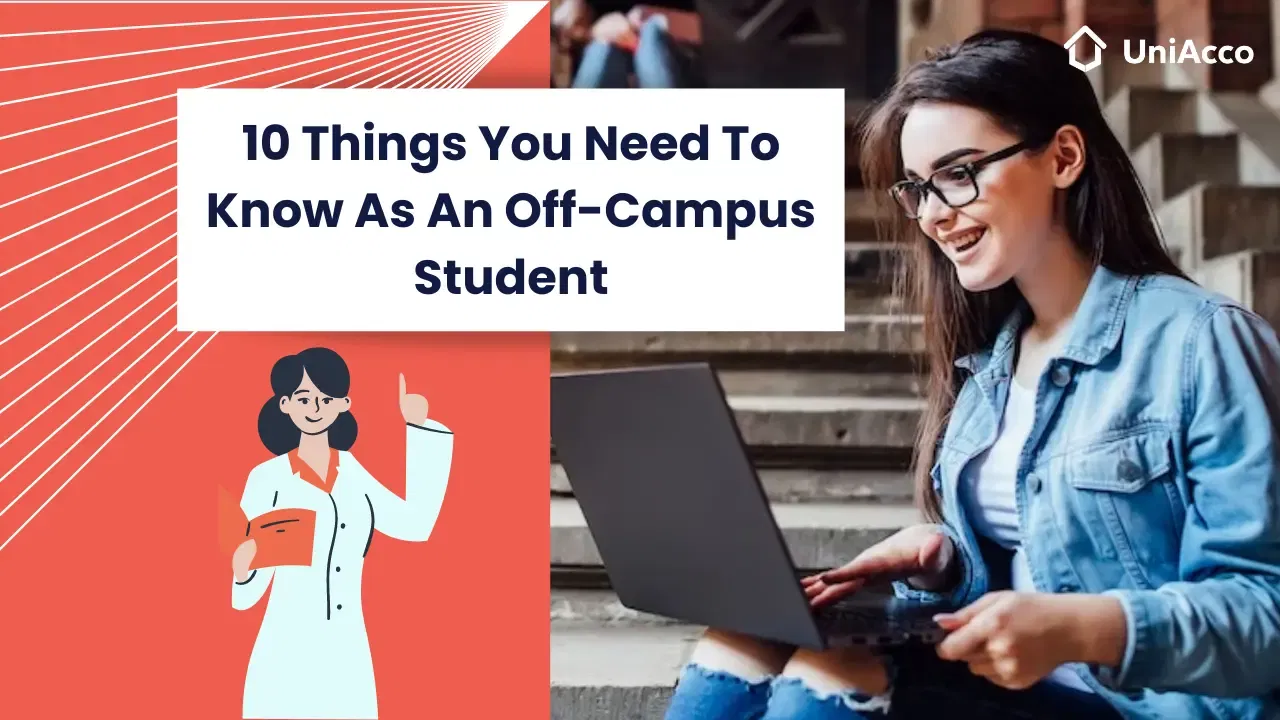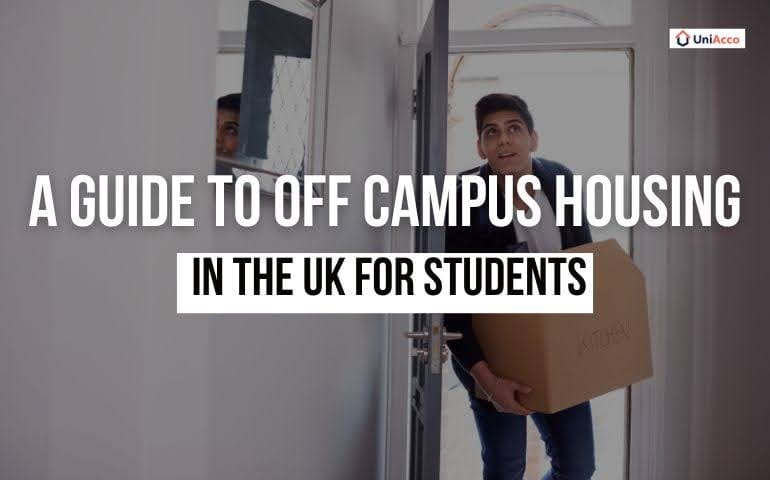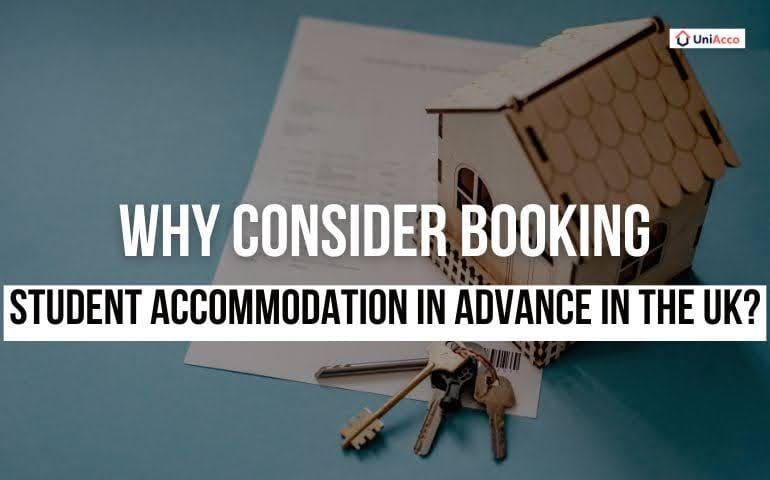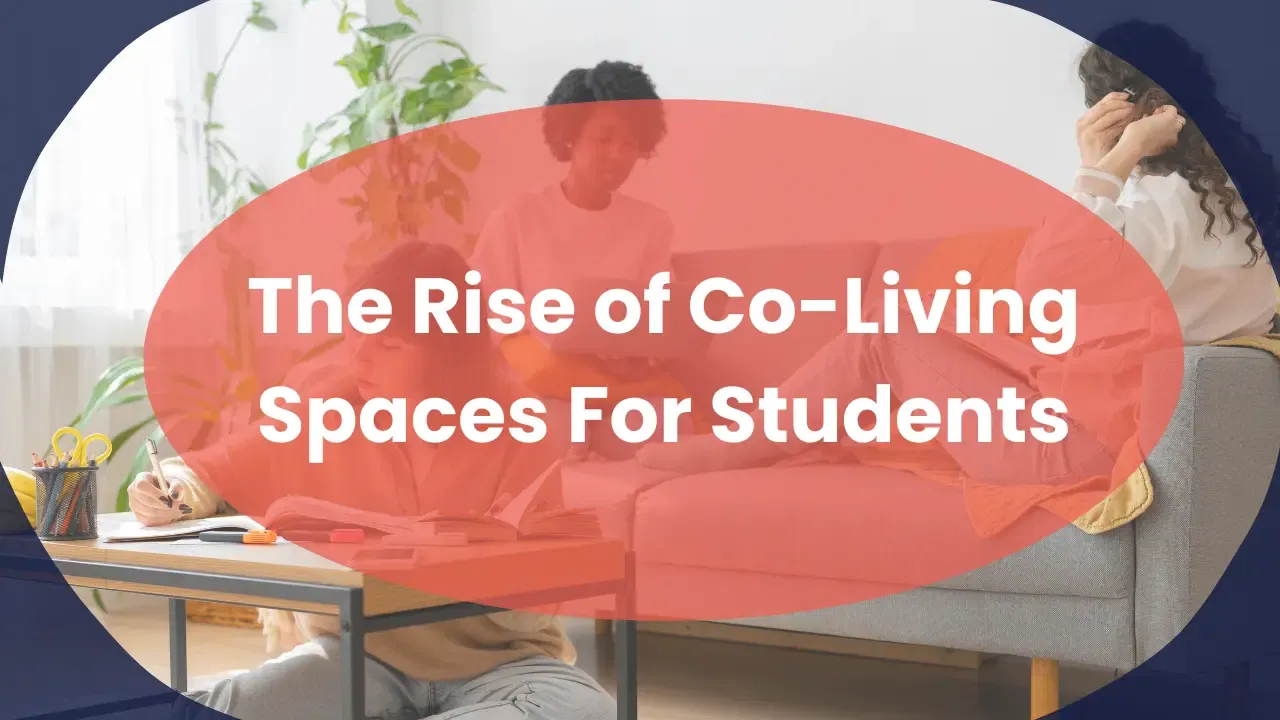If Netflix has shown anything, it’s that living in a dorm or apartment with students from around the world can be one of the most exciting parts of student life. Off-campus living brings movie nights that turn into all-nighters, concerts that end with everyone crashing at one place, and dinners that feel like family gatherings. It’s not just about having a place to stay—it’s about creating unforgettable memories.
Apart from being more affordable, off-campus housing, compared to on-campus housing, has a ton of benefits. However, getting the right off-campus student accommodation is highly important for new students, as it can impact your overall study abroad experience. With that in mind, we’ve curated this list of things to know as an off-campus student:
1. Pick the Right Location
Your location can make or break your off-campus experience. Proximity to campus is crucial, as it saves time and transportation costs.
Look for neighborhoods that are safe, accessible, and student-friendly. Connect with friends attending the same university, and if it all lines up, you can share a place—making the transition to university life smoother and more comfortable. If you’d rather be as close to the city centre as possible, and commuting to university wouldn’t be an issue – you can look at accommodations accordingly.
2. Find a Safe Stay
Safety should be a top priority when choosing off-campus housing. Safety makes your off-campus stay all the more comfortable without having to worry about anything going wrong. Especially when you’re moving to a new country. Approach it with the same level of caution you would when moving to a new city or unfamiliar neighborhood.
Building
Ensuring that your selected apartment complex is safe and secure is crucial. Many buildings typically feature a lockable front door that allows only residents to enter. Also check for functioning outdoor lighting, and proper fire safety measures like smoke detectors and fire extinguishers. For enhanced security, choosing a building with a 24/7 security guard or doorman is advisable.
Neighbourhood
Before selecting a neighborhood, take the time to research various areas in the city and review their crime statistics. While smaller towns tend to be safer, larger metropolitan areas may have higher crime rates. However, you can still feel secure by staying alert and aware of your surroundings.
3. Factor in Travel Expenses
Commuting costs can quickly add up, so account for them in your budget. If you drive, consider fuel expenses, parking permits, and vehicle maintenance. Research monthly pass costs and routes to campus if you’d prefer to rely on public transportation. Living closer to campus may reduce these expenses but could mean higher rent—strike a balance that works for you.
4. Find a Furnished Home
Furnished apartments can save you the hassle and cost of buying furniture. They typically include basics like beds, desks, chairs, and kitchen appliances. If you opt for an unfurnished place, budget for essentials such as a bed frame, mattress, tableware, and cookware. Services like furniture rentals can be a cost-effective option for short-term needs. There are numerous off-campus housing options for fully furnished students, such as Purpose-Built Student Accommodations (PBSAs). PBSAs are specifically designed for students and offer an ideal living environment.
Also read: Why PBSA Is The Best Choice To Minimise The Cost Of Living
5. Amenities and Utilities
Off-campus student housing properties offer a variety of amenities for residents to enjoy. If having an on-site gym or fitness center is a priority for you, look for properties that highlight these features on their website.
Another important aspect to consider is the availability of on-site laundry facilities. Many apartment complexes provide a laundry room on each floor or in the building’s basement, while some may even include a washer and dryer within each unit. Higher-end apartments might also offer amenities like swimming pools, tennis courts, and cinema rooms.
Utilities such as electricity, gas, Wi-Fi, and hot water are essential for daily living. Some off-campus housing providers, such as UniAcco, include utility costs in the rent, simplifying the monthly billing process. If utilities are not included, make sure to arrange for gas and electricity services before moving into your apartment so that everything is ready when you arrive.
6. Research Lease Terms
Before signing a lease agreement, read it carefully to understand your rights and responsibilities as a tenant. Look out for clauses about security deposits, maintenance responsibilities, subletting policies, and early termination fees. Have someone experienced review the lease with you to avoid surprises later on.
7. Invest in Renter’s Insurance
Renter’s insurance protects your belongings from theft or damage caused by events like fire or water leaks. Having renter’s insurance protects you from rental scams and ensures you receive compensation if issues arise during the lease signing or your stay. This insurance also covers damage to personal belongings while living in on-campus or off-campus housing and can reimburse you for stolen items.
If you’re a domestic student, check with your insurance provider to see if they offer renter’s insurance coverage. As an international student, you can purchase renter’s insurance and consult your university about any recommended insurance policies.
8. Pack Strategically
When moving off-campus, before packing those large utensils, duvets and shower supplies, thoroughly check with your accommodation to understand what is being provided. Many apartments come furnished with essentials such as a refrigerator, microwave and washing machine. Be mindful of what you’re carrying with you, compare the costs of supplies such as bedding, utensils, towels and toiletries. Sometimes, shipping extra luggage could cost you much more than purchasing it from your destination.
9. Know Your Neighbors
Building relationships with your neighbors fosters a sense of community and safety in your new environment. Introduce yourself early on and maintain friendly interactions—it could come in handy during emergencies or when you need help with something as simple as borrowing tools or receiving packages.
10. Campus Resources
Even though you’re living off-campus, don’t lose touch with the resources available at your university. Many schools offer services like career counseling, academic support centers, fitness facilities, and student discounts that can enhance your college experience without adding extra costs.
Living off-campus is an exciting milestone that offers freedom and responsibility in equal measure. By keeping these ten tips in mind—from choosing the right location to engaging with your community—you’ll be well-prepared to make the most of this new chapter in your college journey!
UniAcco only aims to make your student life easier. With apartments, condos and more you’re guaranteed to find the perfect stay that combines all the points discussed above. The best spaces run out of availability very soon – we recommend you book soon.
FAQs
1. Who is considered an off-campus student?
An off-campus student is someone who resides outside the university or college campus, often in private housing, and commutes to attend classes or activities.
2. Is off-campus housing better than on-campus accommodation?
Both on-campus and off-campus accommodation have their pros and cons. On-campus housing is usually more convenient and offers more facilities. On the contrary, the latter is considerably cheaper and provides more liberty.
3. Does off-campus accommodation have any disadvantages?
Off-campus accommodation involves additional commuting, which often costs more time and money comparatively. It also includes taking up more responsibilities.
4. How do I choose off-campus student housing?
To choose off-campus student housing, consider the following key factors:
- Location: Ensure the housing is close to your university for convenience and easy access to classes, as well as nearby amenities like grocery stores and public transport.
- Safety: Research the neighborhood for safety, check security features in the building, and talk to current tenants about their experiences.
- Budget and Amenities: Determine your budget, ensure the rent includes necessary utilities, and assess the amenities offered, such as internet access and laundry facilities.
If you liked reading this article on 10 Things You Need To Know As An Off-Campus Student, we hope that added some value to your life. If you wish to read more such articles, we recommend the blogs below:















0 Comments